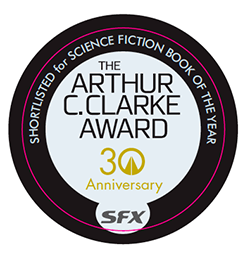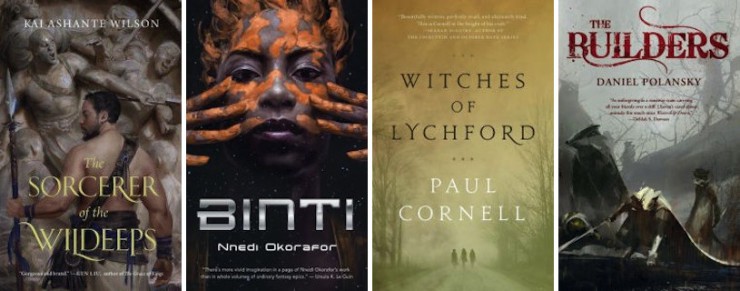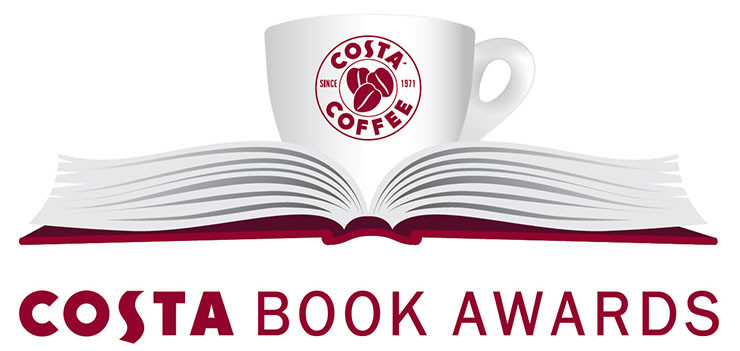Other than dinosaur figures, mugs of tea (Earl Grey, hot), and terrifying Weeping Angel cutouts, the sight most prevalent in our little rocket here at Tor.com are heaps and heaps of books! We get books any way we can here, and though we’re primarily a science fiction and fantasy website, we read across a myriad of genres.
Between our rereads and regular columns—Five Books About…, Fiction Affliction, Short Fiction Spotlight, Sleeps with Monsters, and Genre in the Mainstream—we’re reading books and reviewing books around the clock! So with 2015 coming to a close, we invited some of our regular contributors to choose their three favorite books from the last year, and we’re sharing their responses and recommendations below. Please enjoy this eclectic overview of some of our favorite books from the past year, and be sure to let us know about your own favorites in the comments!
Jared Shurin
 The Gameshouse by Claire North is made of three stories, from 17th century Venice to the present day. Although the stakes of the Gameshouse begin simply enough, they turn esoteric: memories, youth, world domination. Although the core conceit—games!—is entertaining, this brilliant book’s strength comes from the way it handles more subtle conflicts.
The Gameshouse by Claire North is made of three stories, from 17th century Venice to the present day. Although the stakes of the Gameshouse begin simply enough, they turn esoteric: memories, youth, world domination. Although the core conceit—games!—is entertaining, this brilliant book’s strength comes from the way it handles more subtle conflicts.
Cecilia Ekbäck’s Wolf Winter is a murder mystery set in the wilds of 18th century Sweden. Maija and her daughter are surrounded by dangers: predators, killers, apocalyptic weather, political unrest, and supernatural terrors. There’s winter on every page of this dark, frigid novel, but it is also triumphant; an ode to the incredible perseverance of humanity.
Escape from Baghdad! by Saad Hossein is Catch 22 via Tim Powers. In war-torn Iraq, a professor and a smuggler set out on a Quixotic quest for a lost fortune. The fantastic is so carefully interwoven that you wind up believing before you know it, and the book leaves you with the sinking sensation that myth can make more sense than reality.
Alyx Dellamonica
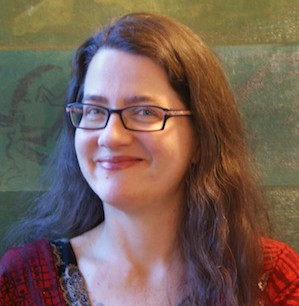 Of all the the new and marvellous things I read this year, the one I loved most was A.C. Wise’s The Ultra Fabulous Glitter Squadron Saves the World Again. This book is that rare fusion of fiction collection and novel sometimes known as a story cycle; it’s about a team of superheroes from across the gender spectrum. It’s about coming out and being fabulous. It has tales of love, friendship and the nature of heroism. It’s a box of truffles book. Each story in it is a confection, each has a different flavor and every reader will have their own favorite.
Of all the the new and marvellous things I read this year, the one I loved most was A.C. Wise’s The Ultra Fabulous Glitter Squadron Saves the World Again. This book is that rare fusion of fiction collection and novel sometimes known as a story cycle; it’s about a team of superheroes from across the gender spectrum. It’s about coming out and being fabulous. It has tales of love, friendship and the nature of heroism. It’s a box of truffles book. Each story in it is a confection, each has a different flavor and every reader will have their own favorite.
Fran Wilde’s YA debut novel, Updraft, meanwhile, is a triumph of worldbuilding set in a city of bone towers whose citizens fly, on handmade glider wings, above the clouds and the ill-understood dangers of whatever exists hundreds of feet below them.
My final pick is Ilana Myers’ Last Song Before Night. I was drawn in by—and could rave about!—so many of its elements. But as an ecofantasy writer myself, I think what I love most is that it takes place in a society whose magical ecosystem is clearly out of balance, and where that society’s innate racism and sexism may raise insuperable barriers to the people most qualified to set things right.
This idea—of entrenched attitudes poisoning whole cultural wells—is something of a common thread with these three very different books. Their heroes are bucking the status quo, in inventive and often subversive ways, and in doing so they entertain, inspire fresh perspectives and gladden the heart.
Liz Bourke
 Picking my favourite books of 2015 is almost an exercise in frustration. There are so many—I have read so many!—that to narrow the field under a round dozen requires vast self-restraint.
Picking my favourite books of 2015 is almost an exercise in frustration. There are so many—I have read so many!—that to narrow the field under a round dozen requires vast self-restraint.
I know what my two absolute favourites of the year are, though. Elizabeth Bear’s Karen Memory (Tor) and Ann Leckie’s Ancillary Mercy (Orbit) tie for first place in my heart. One is an adventure story in a steampunk-influenced city on the American Pacific coast in the late 19th-century, whose eponymous protagonist finds herself running headfirst into all kinds of peril—including international espionage plots—while falling in love with another young woman. The other is the capstone of a fantastic trilogy about power and personhood, and what you do with what’s done to you: it brings all its threads together, and ties them up in a conclusion that’s as perfect as it is unexpected. If you’re only going to read two novels published this year, my recommend is read them.
Honourable mentions to Aliette de Bodard’s The House of Shattered Wings (Ace/Gollancz), Justina Robson’s Glorious Angels (Gollancz), Kate Elliott’s Black Wolves (Orbit), Max Gladstone’s Last First Snow (Tor), Ian McDonald’s Luna: New Moon (Tor/Gollancz), Genevieve Valentine’s Persona (Saga Press), and Heather Rose Jones’ The Mystic Marriage (Bella Books).
Niall Alexander
 I know, I know: another year, another year’s best… but by gum, 2015 has seen the release of some brilliant genre fiction. Superbly subversive secondary-world wonders such as The Fifth Season by N. K. Jemisin and The Traitor Baru Cormorant by Seth Dickinson made my inner fantasy fan a very happy man, and between Game of Thrones in space—Luna by Ian McDonald, I mean—and Neal Stephenson’s Seveneves (notwithstanding that latter’s lacklustre last act) there was no shortage of stellar SF to keep busy with in the interim.
I know, I know: another year, another year’s best… but by gum, 2015 has seen the release of some brilliant genre fiction. Superbly subversive secondary-world wonders such as The Fifth Season by N. K. Jemisin and The Traitor Baru Cormorant by Seth Dickinson made my inner fantasy fan a very happy man, and between Game of Thrones in space—Luna by Ian McDonald, I mean—and Neal Stephenson’s Seveneves (notwithstanding that latter’s lacklustre last act) there was no shortage of stellar SF to keep busy with in the interim.
Truth be told, though, none of the novels I’ve nodded towards so far are likely to benefit by way of being acknowledged in this context, so let me direct your attention, instead, to two books—by two awesome British authors—which I warrant will. “Seriously satisfying cyberpunk action meets thoughtful moral philosophy” in Crashing Heaven by Al Robertson, a dazzling debut devoted to a virtual ventriloquist’s dummy as rib-tickling as he is vindictive. And last but not least, something a little different: The Wolf Border by Sarah Hall is “an extended exploration of myth and motherhood—indeed the myth of motherhood,” the magnificence of which I’ve been mulling over since March.
Mahvesh Murad
 Instead of picking the best of 2015, I thought this year I’d pick the books I had the most fun with, because isn’t that what best is?
Instead of picking the best of 2015, I thought this year I’d pick the books I had the most fun with, because isn’t that what best is?
Margaret Atwood’s The Heart Goes Last is a madcap romp into the near future, where the difference between the freedom to and the freedom from is questioned, as a young couple enter a strange prison system to gain some sense of security in a world that has fallen into anarchy. There are chicken pimps and Elvis impersonators and prostibots and mind wipes enough to entertain anyone, keeping us just out of reach of Atwood’s sharp jabs.
Naomi Novik’s Uprooted received a lot of praise this year, and I have to add to that. It’s just such a warm, hopeful story with wonderfully developed characters and relationships that I was very easily caught up in it. There’s magic of course, but also royal politics, darkness and an enemy that is literally the deep, dark woods all fairy tale creatures are taught to be afraid of.
I really, really had fun with Maria Dahvana Headley’s Magonia too. It’s a really great YA debut from a writer who obviously isn’t held back by any genre divisions, and that’s partly why I’m a fan of Maria’s work—she always writes with such joy no matter what she’s writing that it’s contagious. Plus, Magonia has sky ships, totemic birds living in lungs and a wonderful teenage female protagonist who i can’t wait to spend more time with.
Lastly, a book that hasn’t received as much attention as it perhaps should, is the hilarious and shrewd Escape from Baghdad! by Bangladeshi writer Saad Hossain. Set in the immediate aftermath of the Iraq war, this is a full on gonzo thriller and Hossain’s is a genuinely refreshing and delightful new voice from the subcontinent.
Amal El-Mohtar
I reviewed Uprooted by Naomi Novik three times this year: once for NPR, once in conversation with Justin Landon on Rocket Talk, and once for Lightspeed magazine, and I still don’t feel I’ve adequately gotten to the heart of the effect it had on me. A strong, plot-motivating friendship between women; a beautiful, elegant dance between magic systems; a moving distinctiveness of voice; all combined into a book that made me feel like I was reading fantasy for the first time.
Catherynne M. Valente’s most ambitious and accomplished book yet, reading Radiance felt like watching a book read itself to itself, growing and changing in response. A love letter to early cinema set in a science fictional world with an art-deco aesthetic, Radiance is a novel of moving parts: excerpts from film reels, journals, gossip rags, ad copy and screenplays combine like the teeth of exposed gears to investigate the disappearance of Severin Unck, a documentary film-maker presumed dead on a disastrous expedition to Venus. Breath-takingly ambitious, it sticks what feel like six different landings altogether.
Incomparable this year for sheer delight, Zen Cho’s first novel, Sorcerer to the Crown, made me laugh and gasp and fall in love with its characters with an effortlessness I’d find impressive in a third or fourth novel, but that’s almost unbearable in a debut. It feels in many ways like a loving revision of Jonathan Strange and Mr. Norrell by way of period romance and intersectionality, and I couldn’t put it down.
Alex Brown
 2015 was a bit of an oddball year for my reading. For the first time in many years I (willingly) read a great deal of non-fiction, and most of all the titles I read this year were published earlier this decade. Apparently I was in the mood for burning through my miles-long reading queue. However, of the new books I managed to consume, a handful standout.
2015 was a bit of an oddball year for my reading. For the first time in many years I (willingly) read a great deal of non-fiction, and most of all the titles I read this year were published earlier this decade. Apparently I was in the mood for burning through my miles-long reading queue. However, of the new books I managed to consume, a handful standout.
Like his Milkweed Triptych, Ian’s Alchemy Wars series is set to be a dense SFF alt-history, chockablock with well-considered details and fascinating characters, plus Dutch-made robots with souls, Catholic spies, and French assassins. With Bitch Planet (art by Valentine De Landro) and Pretty Deadly (art by Emma Ríos), Kelly Sue once again shows she knows just where to cut to make it hurt enough to learn the lesson you need to be a better person. These series are visceral, shocking, and heartbreaking, both in terms of writing and artwork. Last but not least, Zen’s Sorcerer to the Crown was the magic-infused Jane Austen I never knew I wanted. This clever, charming comedy of manners about two PoC magicians in Regency England battling fairies, dragons, and racist rich old white dudes is now my go-to rec to entice reluctant fantasy readers.
Runners up: Made to Kill by Adam Christopher, The Island by Emma Ríos and Brandon Graham, Hawkeye by Matt Fraction and David Aja, ODY-C by Matt Fraction and Christian Ward, and the ‘Mancer series by Ferrett Steinmetz.
Caitlyn Paxson
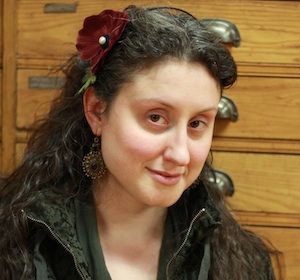 The novels I most enjoyed this year are both portraits of our world as it might exist after a period of apocalypse and subsequent forgetting. Archivist Wasp by Nicole Kornher-Stace tells the story of a ghost hunter trying to salvage crucial knowledge of the past and break free of a cruel and ruthless cycle. An Inheritance of Ashes is a study of the healing that must take place in the wake of war and abuse. Both books are beautiful, with girl protagonists who are prickly, stubborn, and immensely lovable.
The novels I most enjoyed this year are both portraits of our world as it might exist after a period of apocalypse and subsequent forgetting. Archivist Wasp by Nicole Kornher-Stace tells the story of a ghost hunter trying to salvage crucial knowledge of the past and break free of a cruel and ruthless cycle. An Inheritance of Ashes is a study of the healing that must take place in the wake of war and abuse. Both books are beautiful, with girl protagonists who are prickly, stubborn, and immensely lovable.
Mention must also be made of Uprooted by Naomi Novik. A fairy tale that takes place at the edge of the forest, this book reminded me of what it felt like to get really caught up in a fantasy novel when I was thirteen. In fact, it made me go back and re-read some of my old favorites, but none of them allowed me to re-capture that feeling like Uprooted did. It also has one of the most satisfying fictional romances I have encountered in recent years.
Short story collections can be a tough sell for me, but two stood out this year. As with her previous volumes, Kelly Link’s Get in Trouble offers up one amazing mini-universe after another. Likewise, Bone Swans by C.S.E. Cooney deftly navigates between worlds and unique narrative voices.
In graphic novels, Rat Queens Volume 2 contains a new series of adventures with my favorite all-lady RPG party, and Noelle Stevenson really got my attention with both Nimona and Lumberjanes.
Stefan Raets
 I’ve mainly read older novels and reread old favorites this year, so I don’t have a ton of recommendations for 2015 releases. Still, here are a few you really shouldn’t miss:
I’ve mainly read older novels and reread old favorites this year, so I don’t have a ton of recommendations for 2015 releases. Still, here are a few you really shouldn’t miss:
The Library at Mount Char by Scott Hawkins is a contemporary fantasy novel with strong horror elements. A millennia-old deity only known as “Father” has taken twelve American children as his “pelapi” (something between librarian, pupil, and acolyte) and given them access to his vast, Borgesian library, which contains thousands of years worth of natural and supernatural knowledge. Father assigns each of the pelapi a “catalog” or area of study, forcing them through rigorous study and occasionally shocking punishments to become masters of their catalogs. And then, right before the start of the novel, Father inexplicably disappears. The Library at Mount Char is a brilliant, highly original piece of fantasy that more people should be reading. (Longer review here.)
Touch by Claire North. Keppler, the ancient protagonist of Claire North’s second novel Touch can instantaneously and painlessly transfer his consciousness to another person’s body by a simple touch. There are other beings who have the same power as Keppler, but not all of them are as concerned with the continued well-being of their, well, let’s call them victims. Beautifully written in an unforgettable narrative voice, expertly paced, and highly recommended. (Plus, believe it or not, North’s first novel The First Fifteen Lives of Harry August is an entire order of magnitude better again.) (Longer review here.)
The Just City and The Philosopher Kings by Jo Walton. The goddess Athena transfers ten thousand doomed child slaves through time and space to participate in an amazing experiment: create a real life version of Plato’s Republic. The god Apollo joins the project undercover, in human form, to learn more about human values that are borderline incomprehensible to him. These are high-concept books full of philosophical dialogue and contemplations on the nature of time, godhood and reality — but they’re also fantastically entertaining stories about regular people (and okay, maybe a few gods, legendary philosophers and sentient machines) who have found themselves in the strangest of situations. (Important note: you don’t, I repeat DON’T, have to read Plato to enjoy these books. Read the Wikipedia article on the Republic if it makes you feel better, but seriously, Jo Walton has made it easy for philosophy majors and laymen alike to read and love these wonderful books. (Longer review here.)
Theresa DeLucci
 I’ve read a lot of weird (and Weird), creepy, heartbreaking and memorable books for Tor.com this year, but only a few managed to combine all of those elements into one story. A Head Full of Ghosts by Paul Tremblay (full review) will be my go-to recommendation for quite some time. Tremblay plays with a standard possessed girl trope and subverts it into a clever, devastating tale of a family being torn apart by internal and, possibly, supernatural pressures. Chapters alternate between different timelines and different audiences, presenting a puzzle. When you learn new information is just as important as who tells it to you and by the last word, you’ll immediately want to start the novel again. After you sit quietly for a spell, trying to shake the ghosts of this story from your own head.
I’ve read a lot of weird (and Weird), creepy, heartbreaking and memorable books for Tor.com this year, but only a few managed to combine all of those elements into one story. A Head Full of Ghosts by Paul Tremblay (full review) will be my go-to recommendation for quite some time. Tremblay plays with a standard possessed girl trope and subverts it into a clever, devastating tale of a family being torn apart by internal and, possibly, supernatural pressures. Chapters alternate between different timelines and different audiences, presenting a puzzle. When you learn new information is just as important as who tells it to you and by the last word, you’ll immediately want to start the novel again. After you sit quietly for a spell, trying to shake the ghosts of this story from your own head.
I also really enjoyed the fat, eclectic story collection Three Moments of an Explosion by China Mieville (full review)—particularly the final story “The Design”—and the complex, kinetic, beautifully-wrought short novel The Sorcerer of the Wildeeps by Kai Ashante Wilson. I guess between Tremblay, Mieville, and Wilson, I most enjoyed being left gutted by stories this year. Open to suggestions for lighter fare in 2016!
The G
I spent a good six months focused on cyberpunk and Old Man’s War retrospectives, which means that I didn’t read as much new fiction in 2015 as in recent years. But there were still some gems, first and foremost being Ian Sales’ All That Outer Space Allows. It’s the fourth installment in his Apollo Quartet, a series of hard SF novellas premised on an alternate history of the Apollo space program. This one is also centrally concerned with the sexism women writers have historically faced in the field in science fiction, but not at the expense of story—which is riveting.
The second book I’d recommend is Scalzi’s The End of All Things—the sixth book in the Old Man’s War series and one I devoted a lot of words to over the summer. It doesn’t quite measure up to the original trilogy, but it is still highly entertaining and a must-read for fans of the series.
Finally, I don’t usually go for contemporary fantasy (i.e. fantasy set in our world), but I picked up Signal to Noise by Silvia Moreno-Garcia on fellow ‘nerd of a feather’ Charles Payseur’s recommendation, and was very happy that I did. It’s premised on the notion of magic that’s activated by music, which—as a music obsessive—really struck a chord with me (sorry—I couldn’t help myself there). But, like many of the best novels, it’s really about growing up, and dealing with the fallout from how that transpires. Moreno-Garcia is a wonderful writer, and I look forward to reading her next novel.












